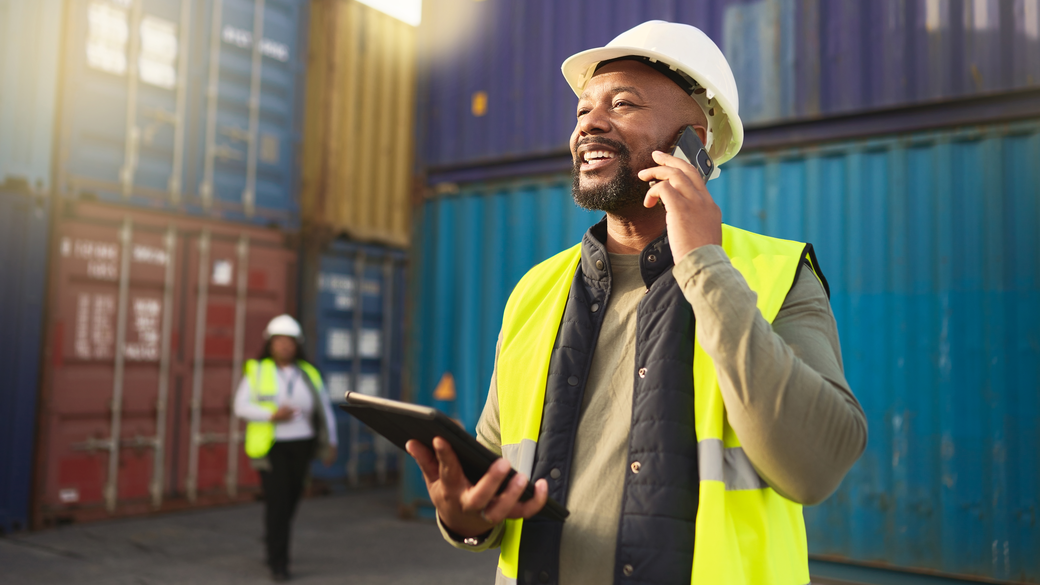Business leaders the world over are looking ahead and analyzing emerging logistics industry trends that will impact the future of their operations.
Technology like artificial intelligence are accelerating supply chains through automation, reducing the need for manual inputs and increasing delivery efficiency.
We aren’t rapidly moving toward the future of logistics; we’re already living in it. So, what is the future of logistics, and how will it impact the way companies get goods into the hands of consumers? Here’s everything you need to know.
During the last five years, logistics have been shaped by rapid advancements in technology and unprecedented challenges. Supply chain management (SCM) workflows have been completely retooled to create leaner and more adaptable supply lines.
Simultaneously, organizations have begun to integrate green practices into their processes. Their aim is to reduce their environmental impact and promote sustainability.
Best Emerging Trends in Logistics
Digitized workflows and automation are revolutionizing the industry by streamlining operations and reducing human error.
With increased automation businesses are becoming nimbler and more responsive.
AI and machine learning are behind many of the most exciting logistics trends. These technologies can analyze and consolidate vast amounts of data into rapid, actionable insights. AI-driven systems can also automate repetitive tasks, freeing up your team to tackle more complex challenges.
Let’s look at a few more of the trends shaping the future of logistics:
Sustainable Logistics
Businesses are making a concerted effort to reduce their environmental impact. Eco-friendly transportation methods, such as electric vehicles and hybrid trucks, help lower carbon emissions and decrease fuel consumption. These methods not only benefit the environment but also reduce operational costs in the long run. Manufacturers and retailers are also exploring sustainable packaging solutions.
To reduce waste output, companies are moving away from traditional plastics in favor of biodegradable materials and reusable options. Even minor changes to packaging can drastically reduce overall waste.
Few businesses have stepped up to the plate as boldly as Amazon. The Amazon Climate Pledge is the e-commerce giant’s commitment to reaching net-zero carbon emissions by 2040 and to powering its operations with 100% renewable energy by 2030.
Since Amazon announced its pledge, several companies have joined the movement and contributed to the fund. Three of the most notable additions are Verizon, Reckitt Benckiser (RB), and Infosys.
Innovations in Supply Chain Management
The more complex the supply chain, the greater its environmental footprint. Larger supply networks also produce a lot more data than their simpler counterparts. Such innate complexity has traditionally made it difficult for businesses to achieve end-to-end visibility, but that’s all changing.
Now, businesses are adopting fully integrated technology solutions to promote transparency and inform decision-making processes. They are also focusing on improving collaboration with trade partners to accelerate the flow of information and improve responsiveness.
Savvy business leaders are using these insights to embrace multimodal shipping. This strategy involves using multiple modes of transportation (e.g., sea, air, and land) to move goods. They are getting creative to improve flexibility and cut costs.
The Global Sea-to-Air Hub in Bahrain is a good example of multimodal transportation in action. The cruise and cargo facility streamlines clearance procedures and has cut lead time on bonded goods to just two hours. Hub leadership says these efforts are reducing costs by as much as 40% while also cutting turnaround times in half.
The Bahrain hub and similar entities also use a strategy known as “elastic logistics,” which refers to a company’s ability to rapidly scale its operations up or down based on demand.
By adopting elastic logistics processes, businesses can better respond to peak seasons and low-demand periods.
Advances in Warehousing and Inventory Management
The latest warehouse management systems (WMS) are pivotal in modernizing logistics workflows and support the increasingly prevalent use of robots in warehouse tasking.
For example, Amazon has deployed robots in its fulfillment centers to increase productivity and reduce order processing times.
Robots are just one form of automation that has improved efficiency and led to cost reductions. Automated back-end systems can handle repetitive tasks and keep inventory levels up to date.
Among the most exciting changes to the warehouse environment is the use of wearable devices. Businesses are equipping workers with smart glasses, smart helmets, handheld scanners, tablets, and wearable sensors to keep them connected while on the floor. Thanks in large part to AI-directed activities, workers can access data in real-time and be more productive.
Companies are also deploying edge sensors and devices to increase visibility into production lines and warehouse operations.
These tools can monitor the temperature of perishable goods, provide data about production output, and help decision-makers identify bottlenecks that may hurt profitability.
Last-Mile Delivery Innovations
The last mile is the final leg of a product’s journey into the hands of eager customers. By improving last mile delivery, businesses can reduce transport times and meet customer demand for rapid service.
However, numerous challenges can occur during this phase in the supply chain. Drivers must contend with everything from traffic congestion to frequent stops, and non-optimized routes can lead to major delays and upset customers.
Businesses are winning the last mile using a multifaceted approach. They redesign routes using AI-powered optimization technology, which reduces inefficiencies and saves fuel.
Some companies are exploring drone technology as another potential solution, and autonomous vehicles could be used to help reduce labor costs and increase delivery speeds.
Enhancing Supply Chain Resilience
The COVID-19 pandemic showed the world how interdependent global supply chains really are.
Lockdowns and widespread illness disrupted production lines and made it difficult for businesses to keep up with consumer demand. Companies learned the importance of diversifying suppliers and having contingency plans in place.
Businesses are becoming more resilient by focusing on supply chain agility. They are reducing their dependency on single suppliers and exploring local sourcing options. By sourcing materials locally, businesses can reduce lead times and lower transportation costs.
Reducing dependence on one supplier is only part of the equation, though. Business leaders are additionally investing in forecasting tools to better understand consumer trends and pivot to shifting marketing conditions.
Digital Transformation and Investment
Data is the critical commodity on everyone's mind. Business leaders are pursuing digital transformation initiatives to best gather and use vital organizational data.
Cloud-based supply chain management tools are key in the race toward better data accessibility. Examples include the WMS and the transportation management system (TMS).
Such solutions integrate with enterprise resource planning (ERP) technology for increased visibility into business operations. By using insights from TMS and WMS solutions, company leaders can better plan and steer their organizations.
Digital twins, which are virtual representations of physical objects, can support a wide range of processes. Logistics professionals can create digital twins of supply routes, production facilities, and other assets to run simulations and better understand the impacts of proposed changes on real-world operations.
Understand the Future of Logistics With Epicor
How your business handles logistics will have a direct impact on its short and long-term success.
You must be diligent in your investments and modernization initiatives to ensure your company maintains its competitive edge.
Adopting the latest cloud-based technologies will help enhance data visibility and promote informed decision-making.
Contact Epicor, and let’s discuss how our technologies can help your business thrive in tomorrow's logistics sector.








